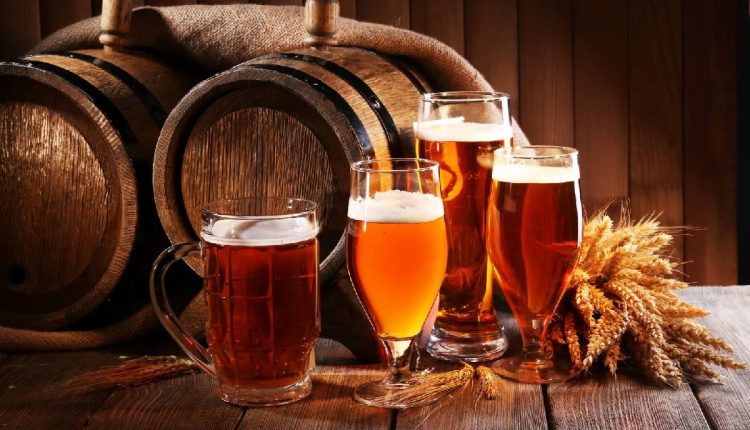Beer — cold, foamy, and full of flavor — has been bringing people together for thousands of years. Whether you’re sipping a craft lager at a rooftop bar or enjoying a traditional ale at a pub, you’re part of a story that began more than 7,000 years ago. That’s right — beer is one of humanity’s oldest and most beloved creations.
Let’s travel back in time to explore the origins, evolution, and cultural impact of beer — the drink that shaped civilizations and still cheers up our lives today.
A Sip Through Time: Beer’s Ancient Beginnings
The earliest signs of beer come from the ancient lands of Mesopotamia — present-day Iraq — where the Sumerianswere fermenting grains as early as 7000 BCE. These primitive brews were thick, nutritious, and often consumed through long straws to filter out sediment.
A Goddess of Beer?
The Sumerians even had a goddess of beer, named Ninkasi. A hymn written in her honor served as both a worship chant and a beer recipe, describing the art of brewing in poetic form. This blend of faith and fermentation shows just how essential beer was to daily life — it wasn’t just a beverage, but a sacred ritual.
Ancient Egypt: Beer for Pharaohs and Pyramid Builders
Beer made its way to ancient Egypt, where it became a daily staple for both royals and workers. Archaeological evidence shows that:
-
Beer was brewed using barley bread, water, and natural fermentation.
-
Pyramid builders were often paid in beer, receiving multiple liters a day as part of their rations.
-
It was seen as both nourishment and divine gift, often used in religious ceremonies.
In other words, ancient Egyptians didn’t just enjoy beer — they thrived on it.
Europe’s Early Sips: From Celts to Romans
Beer spread across Europe, long before wine became the symbol of Roman luxury.
-
Celtic and Germanic tribes brewed their own versions of beer using herbs, roots, and spices (like gruit).
-
Although the Romans preferred wine, beer remained popular in northern regions where grapes didn’t grow well.
-
In medieval Europe, beer was safer to drink than water and was a staple in both homes and taverns.
Hops to It: The Game-Changing Ingredient
In the 9th century, something amazing happened in Germany — brewers began adding hops to beer.
-
Hops added a pleasant bitterness and aroma, balancing the sweetness of malt.
-
More importantly, hops acted as a natural preservative, allowing beer to stay fresh longer.
-
By the 12th century, hopped beer became widespread across Europe and replaced earlier herbal recipes.
This marked the birth of modern beer as we know it.
Monks, Mastery, and Monasteries
During the Middle Ages, brewing became a craft perfected by monks.
-
Monasteries had the resources and knowledge to refine brewing techniques.
-
Monks created cleaner, more consistent beers and kept detailed records.
-
Some of today’s finest beers — like Belgian Trappist ales — trace their roots to these sacred brewhouses.
The 1516 Beer Purity Law — Reinheitsgebot
In Bavaria (Germany), the legendary Reinheitsgebot law was passed in 1516.
It declared that beer must only contain:
-
Water
-
Barley
-
Hops
(Yeast was added to the list after its role in fermentation was discovered.)
This law set the gold standard for beer purity and safety, influencing global brewing for centuries.
Beer Goes Global: Colonization & Industrialization
As European empires expanded, they carried beer with them:
-
British sailors brewed stronger, more durable beers — including India Pale Ales (IPAs).
-
Dutch and German immigrants introduced beer to America, where it gained massive popularity.
-
The 19th century saw major brewing innovations: pasteurization, refrigeration, and mass production.
Beer became a worldwide sensation.
Cheers to the Modern Era
Today, beer is a global favorite with countless styles: pilsners, stouts, lagers, sours, wheat beers, and more.
From mega breweries to small-batch craft brewers, beer continues to evolve — but its essence remains the same: a drink made to bring people together.
Fun Facts:
-
Oldest Beer Recipe: The Hymn to Ninkasi (~1800 BCE)
-
Beer as Wages: Egyptian workers received up to 5 liters per day
-
Beer’s Legal Milestone: Germany’s Reinheitsgebot (1516) is the oldest food regulation still enforced
-
Modern Trend: Over 20,000 craft breweries now operate worldwide
In Conclusion
Beer isn’t just a beverage — it’s a part of human history. From Sumerian rituals to medieval monasteries and modern brewpubs, beer has always been about connection, creativity, and community. So next time you raise your glass, remember: you’re sipping on 7,000 years of tradition.


Comments are closed.